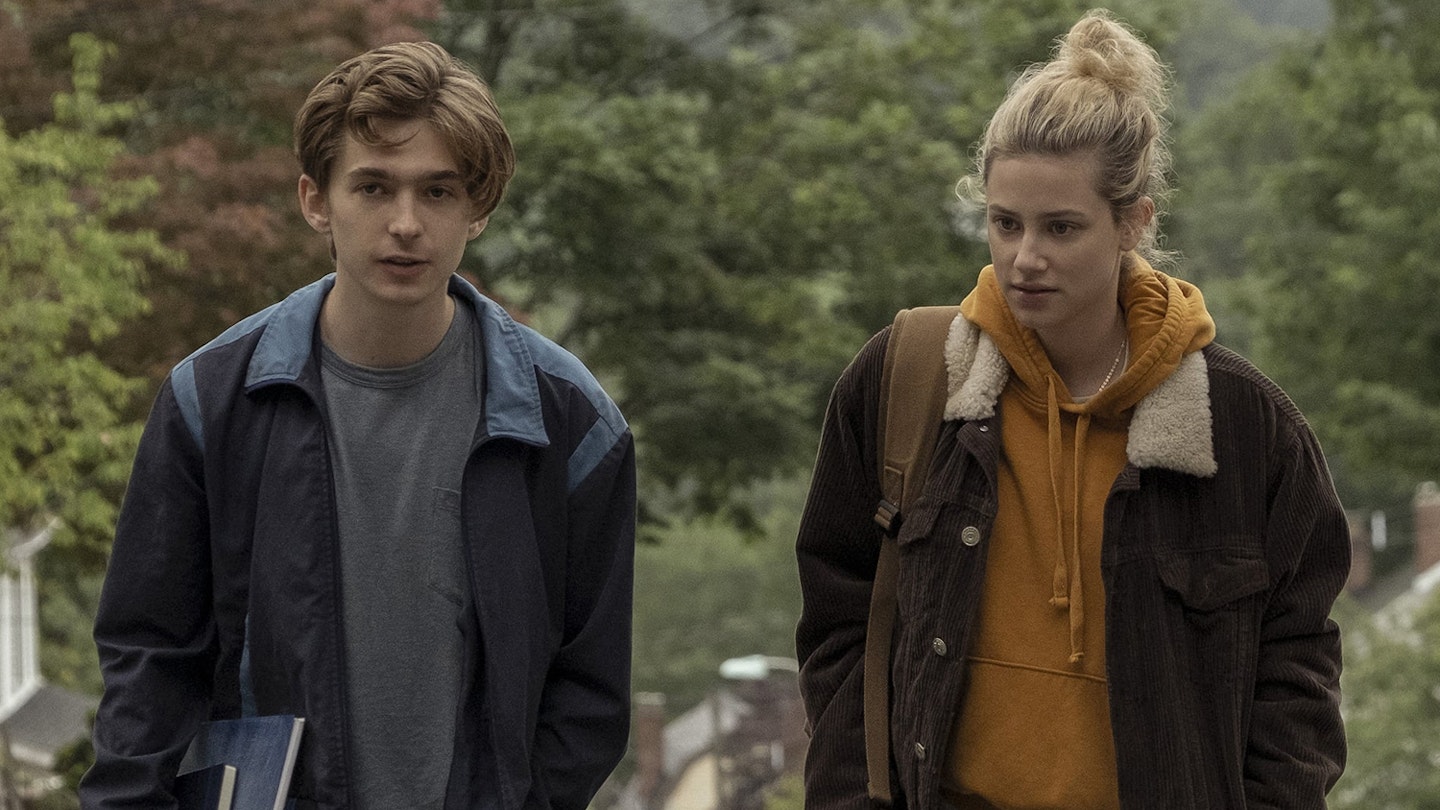Teen movies can often be divided into two different brackets defined by age. There’s early adolescence, where puberty and shame take hold of a young person’s sense of self with excruciating intensity. And then there’s young adulthood, where these teens aren’t yet old enough to live on their own but have still lived enough to realise how terrifying and complex the world truly is. Chemical Hearts belongs to the second category, a romantic drama with a formulaic pairing that still aims to dig deep and do justice to the heartbreaking and overwhelming reality of being a teenager feeling everything all the time.

Henry (Abrams) is a familiar protagonist, a teenage boy who desperately wants to better understand the world around him, namely via the girl he’s just fallen in love with. He tries to fix things, to comprehend situations he hasn’t lived, by relating them to pop culture. He might not have experienced it, but he’ll find a poem or a lyric for it. Grace (Reinhart) is his everything, a girl who has known grief and love greater than Henry could ever wish for. Abrams and Reinhart channel the marrow-deep intensity of their prior roles – he as Ethan in Euphoria, she as Betty in Riverdale – to let the characters both grow and complement each other.
The script seems designed to be repurposed in retweets, Instagram stories, and probably even tattoos.
Chemical Hearts speaks to an audience who are already listening: those in the same demographic as these onscreen teens, desperately searching for meaning, for stimulation and satisfaction on Tumblr and in each other. The script, based on Krystal Sutherland’s novel, seems designed to be repurposed in retweets, Instagram stories, and probably even tattoos: eloquent rationalisations of emotions, lucid explanations of angst, grief, and the frustration of feelings like you’re alone against the world.
It’s delivered in an attractive, atmospheric package – with a note-perfect indie-rock soundtrack to boot – and so it works. The only problem is that, once more, it is he, with so much less of a story, who is telling us all about her. The same audience would still listen, surely, if only the tables for once could be turned.
